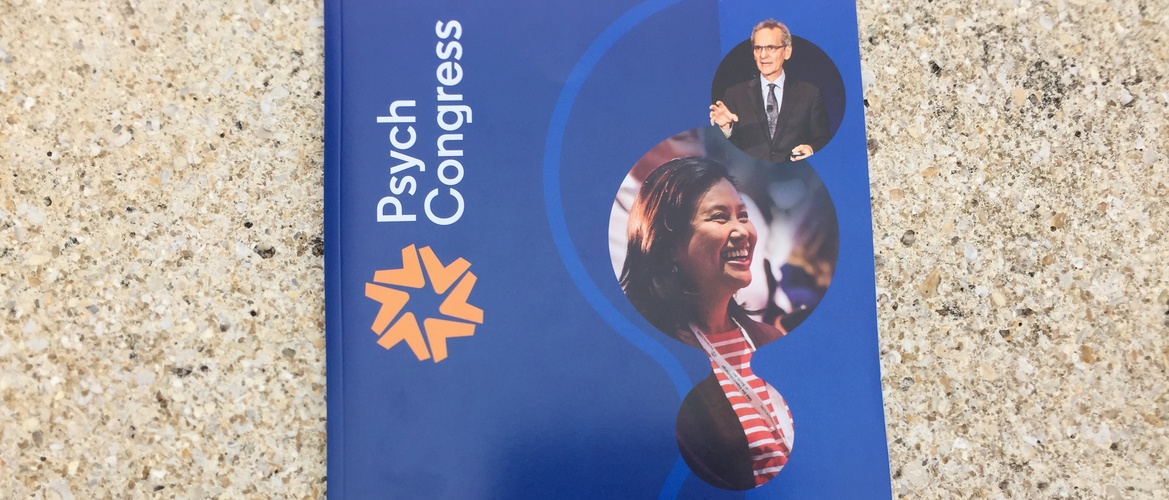
Vælg et område
Check de forskellige Progress in Mind indholdsområder.

Progress in Mind

Over the next decade, the outcomes for patients with schizophrenia should improve considerably, explained John Kane, Professor of Psychiatry, The Donald and Barbara Zucker School of Medicine at Hofstra/Northwell, NY, to an attentive audience at Psych Congress 2018. In 2013, only 1 in 7 patients with schizophrenia met the criteria for recovery,1 but strategies are now in place or being developed to address the many gaps and unmet needs identified in the management of schizophrenia. Such strategies are focused on shortening the duration of untreated psychosis (DUP) and improving outcomes of first-episode psychosis (FEP), facilitating adherence, and measuring and monitoring outcomes to enable timely preventive interventions.
Widespread expansion of coordinated specialty care (CSC) and machine learning are enabling early identification of psychosis and shortening DUP, while increased use of long acting injectable antipsychotics (LAIs) and novel medication trackers are facilitating adherence, explained Professor Kane. In addition, smartphones and wearable technologies are being used to measure outcomes and monitor individuals with schizophrenia in their daily lives to enable timely interventions as needed to support recovery. Combining all these strategies promises to improve outcomes considerably for individuals with schizophrenia over the next decade.
Coordinated specialty care improves outcomes, especially if the duration of psychosis is less than 74 weeks
Shortening DUP
The longer the DUP, the worse the outcome in terms of functioning, educational opportunities, psychosocial and vocational development, personal suffering, family burden, and treatment response,2 said Professor Kane.
CSC — a collaborative, team-based, recovery-oriented approach to the treatment of first-episode psychosis (FEP) — has been pioneered in a number of countries including the US, France, Australia, Canada, and Denmark (for more see: https://progress.im/en/content/pioneering-coordinated-specialty-care-programs-first-episode-psychosis). These programs are enabling early detection of psychosis and improving outcomes for FEP. The RAISE program in the US has shown that the benefits are more pronounced for those with a DUP of less than 74 weeks.
Stopping medication is the most powerful predictor of relapse
A novel strategy to shorten the DUP is to identify individuals with early psychosis from their interactions with social media and the Internet using natural language processing. Individuals diagnosed with FEP have indicated that they would have appreciated a proactive outreach providing help and information online in the early stages of their illness. Pop-up ads offering appropriate information are therefore being trialed to appear in response to selected searches on the Internet, for instance in response to a search for hallucinations.
Antipsychotic therapy is effective at preventing relapse and the number needed to treat to prevent relapse is 3,3 said Professor Kane. Furthermore, stopping medication is the most powerful predictor of relapse. Among 104 patients with FEP, the risk of relapse was five times greater for those not taking medication.4
LAIs significantly reduce the need for hospitalization compared with oral antipsychotic therapy
It is human nature for people to have trouble taking their medication, particularly if they are experiencing difficulties with insight, judgement and motivation, explained Professor Kane. It is time to destigmatize and normalize nonadherence and provide assistance to facilitate adherence, for instance by using LAIs. LAIs significantly reduce the need for hospitalization compared with oral antipsychotic therapy.5 Professor Kane highlighted that at present less than 18% of patients are treated with an LAI, but suggested that the percentage should be at least double or even triple this. He said that when considering medication, the question should be why should an LAI not be prescribed?
A novel initiative to assist individuals with schizophrenia in taking their daily oral antipsychotic has been to include a tracker in the medication to transmit details of the drug and the time taken to a remote monitor. The patients can then be prompted to take it if necessary, added Professor Kane.
Tracking behavior in real time can alert the care team to the need for preventive interventions
Measurement of outcomes and monitoring is being facilitated by the use of smartphones to passively record activity and to track behavior in real time, and a variety of wearable technologies, explained Professor Kane. Such monitoring can alert the care team to the need for preventive interventions, for instance if such technology shows that an individual has not left their home for a week. It is important, however, to ensure that such technologies are used ethically and effectively, he added.
For a more detailed discussion about the RAISE project, including how it has impacted patients with first-episode psychosis, see this article in the Lundbeck Institute Campus: https://institute.progress.im/en/content/right-treatment-right-time-%E2%80%98raise%E2%80%99-project-first-episode-psychosis